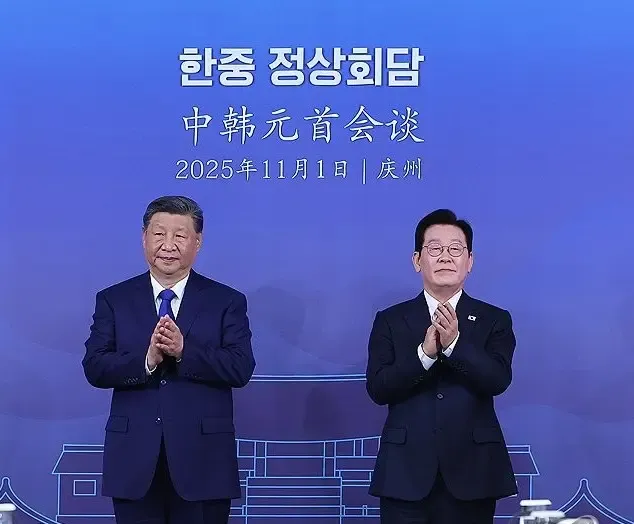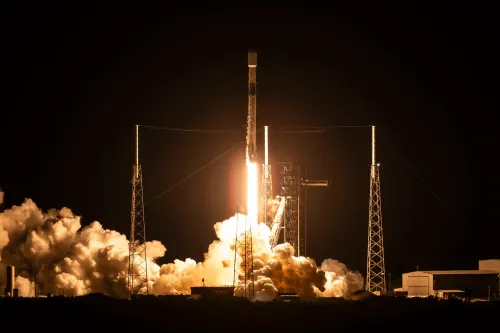Have South Korea and China Renewed Their $48.9 Billion Currency Swap Deal?

Synopsis
Key Takeaways
- The currency swap deal is worth 70 trillion won ($48.9 billion).
- It is renewed for another five years.
- The agreement aims to stabilize financial markets.
- Additional MOUs were signed to enhance economic cooperation.
- This marks a significant step in Korea-China relations.
Seoul, Nov 1 (NationPress) South Korea and China have officially renewed their currency swap agreement, valued at 70 trillion won (approximately $48.9 billion), for an additional five years, as confirmed by the presidential office.
This agreement was finalized between the central banks of both nations during a summit involving President Lee Jae Myung and Chinese President Xi Jinping, held in the southeastern city of Gyeongju, according to reports from the Yonhap news agency.
The previous Korean won-Chinese yuan swap deal, which also amounted to the same value and duration, expired last month.
The presidential office stated, “This currency swap agreement is anticipated to enhance stability in the financial and foreign exchange markets and facilitate trade between the two countries.”
In addition to the swap deal, the two nations signed a memorandum of understanding (MOU) aimed at bolstering exchanges, services, and trade.
The office further noted, “This will establish a solid institutional framework for economic collaboration, promoting significant advancements in the Korea-China free trade agreement negotiations regarding services and investments.”
Moreover, both countries agreed on an MOU concerning a joint economic cooperation strategy for the years 2026-2030, outlining a long-term vision for mutually beneficial collaboration.
Additional agreements included initiatives for bilateral cooperation to tackle voice phishing and online scams, the joint promotion of a startup partnership program, and phytosanitary requirements for exporting fresh Korean persimmons to China.
Following a three-day visit to South Korea, where he participated in the Asia-Pacific Economic Cooperation (APEC) summit, President Jinping returned to China.
This visit marked his first trip to South Korea in 11 years, coinciding with a pivotal summit with U.S. President Donald Trump in Busan, where both leaders discussed measures to alleviate the ongoing trade war.









